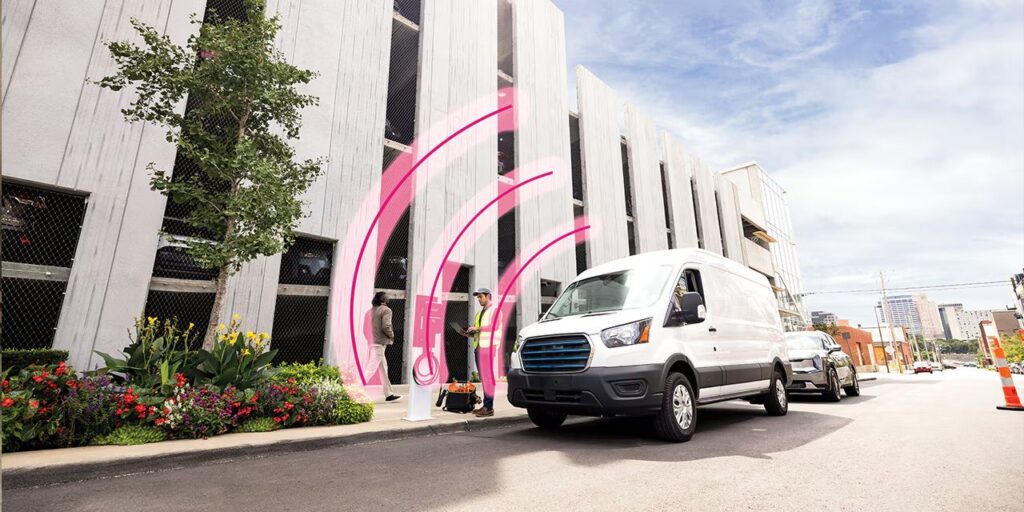Key Takeaways
- Miller Electric Company introduces autonomous shuttles in Jacksonville using a private T-Mobile 5G network.
- The driverless vehicles can transport passengers along a three-mile route, ensuring maximum safety and communication.
- The roll-out is expected in 2025, and it could expand to other areas in the future.
Imagine a world where cars are always connected, and your driving experience is completely autonomous. Now, we know that private consumer products are still a ways off, but it looks like public modes of transport are thriving, with products like Waymo and now a new offering from Miller Electric Company.

Related
This network is much faster than 5G, but you might need a new phone to take advantage
5G is about to be dethroned
The brand, along with T-Mobile, announced the unveiling of a new fleet of vehicles that will work autonomously, and will be used to transport folks to and from the waterfront in Jacksonville, Florida. The vehicles will rely on the T-Mobile network and will have its own private 5G network that will keep all the vehicles connected and operational.
Something new for the city of Jacksonville
As you might expect, this is a pretty big deal. The autonomous shuttles will be able to transport guests along a three-mile track that will visit the city’s football stadium and also go to the waterfront. The 5G network is important because it allows communication between vehicles, but also with a central control center as well.
These vehicles won’t be in an enclosed area and will be moving alongside other public vehicles, so it’s important that it has the best connectivity possible to ensure the safest experience. The 5G internet will allow for “real-time video surveillance and two-way audio and video communications between passengers and employees.”
As far as when will we see this all come to life? Well, it looks like the vehicles and the network will be live sometime in 2025. And if all goes well, you can bet that this program will be expanded to other areas. Of course, the reality of all this is that the roll-out of this type of technology has been quite slow.
Despite reporting on autonomous vehicles for nearly a decade, we’ve yet to see this really take off and take over. Sure, there are fleets in approved states, and in that time, we’ve seen some huge partnerships like Waymo and Lyft coming together. But the real hurdle here is government approval and that looks to be a difficult process.
But with each successful project, we get one step closer to a world where cars are always connected, and your driving experience is completely autonomous, making it easier to get from place to place with less mess and stress.

